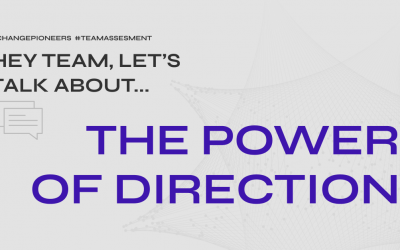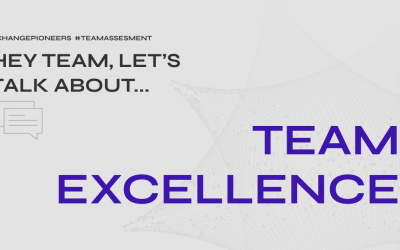Feedback is, on the one hand, the description of a specific behavior or result and, on the other hand,
the verbalized effect that is triggered in the feedback giver. Feedback is never objective, but rather
controlled subjectivity. It is not about finding the truth, but about a possible increase in knowledge
for the feedback receiver.
Effective feedback, both positive and negative, helps to improve and enhance, whether on an
individual, team or company level:
- High-performing leaders are not only good at giving feedback, but they are also intentional
about asking for feedback. And they know that feedback is only helpful if it identifies
weaknesses as well as strengths. Because it allows to make better informed decisions, helps
with personal development and to build and maintain communication with others. - For high-performing companies, "continuous improvement" is also not just a buzzword. It is a
real focus based on feedback within and from across the organization – colleagues,
customers, suppliers and stakeholders.
Getting and giving others feedback should be deep in your DNA:
- With so many diverse talents from different backgrounds probably coming together in your
organization they need to exchange perspectives to achieve results together. - When you want to develop great talents to even greater humans feedback is at the core.
- Achieving your vision and business goal in these high-volatile times needs radical candid
feedback in your daily interactions.
What are good Feedback Opportunities?
Remembering that feedback is about a possible increase in knowledge on the part of the feedback
recipient, it makes someone sensitive to aspects that they themselves are not aware of or do not
want to acknowledge. Appreciative feedback can therefore encourage others. Constructive feedback
increases one’s own concerns.
In the right dose, both are helpful and important. Just keep in mind: the human brain is
evolutionarily oriented towards self-preservation and not towards self-knowledge. Therefore less is
sometimes more.
In general – when not to give feedback:
- Personal Preference – If it is more about your own preference or style than the quality of theperson’s work or approach.
- Limited Information – You do not have a full understanding of the situation.
- Circle of Influence – The problem is out of the recipient’s control.
What about on-the-spot feedback?
Before giving instant constructive feedback, ask yourself whether:
- Their actions are having a significant impact on colleagues or the company;
- You’re feeling calm and invested, rather than stressed or antagonistic;
- The employee can hear and take on your feedback;
- The feedback can be given in a quiet, discreet place;
- You have a firm idea of what you want to say.
And when to give employees instant praise? When your employe:
- Went above and beyond in order to manage a stressful week;
- Helped a colleague overcome a difficult roadblock;
- Nailed a presentation that inspired the rest of the team;
- Completed a long, tedious task that will speed up future processes;
- Needs a confidence boost
Feedback and precise language
Much of our language consists of wild assumptions (“I know what you mean!”) and generalizations
(“Good job!”). We believe that the other person will already understand us, or we believe that we
understand exactly what the other person means. Misunderstandings and disappointed expectations
often arise based on such linguistic fog banks. Clear and precise feedback communication has
nothing to do with intelligence, but with courage. With the courage to banish powerlessly and
imprecise phrases from one’s own vocabulary.
Here are some feedback openers to try more precise language:
Instead of “Good job!” try “Here are two things that really worked for me”
Instead of “Here’s where you need to improve” try “Here’s what worked best for me, and here’s why”
Instead of “You need to improve your communication skills” try “Here’s exactly where you started to lose me”
Instead of “You lack strategic thinking” try “I’m struggling to understand your plan”




